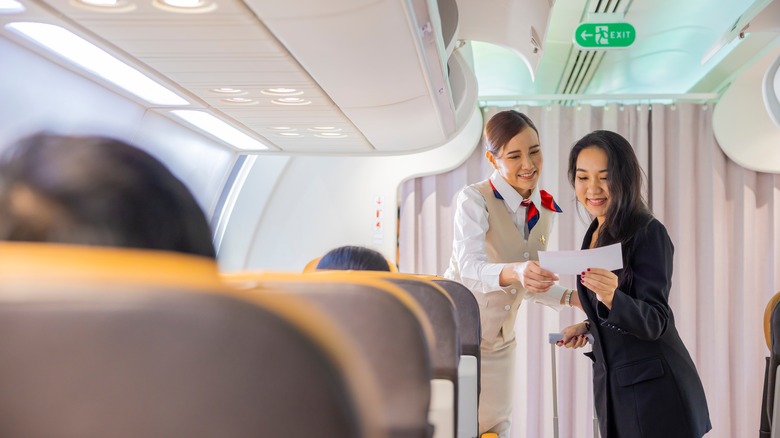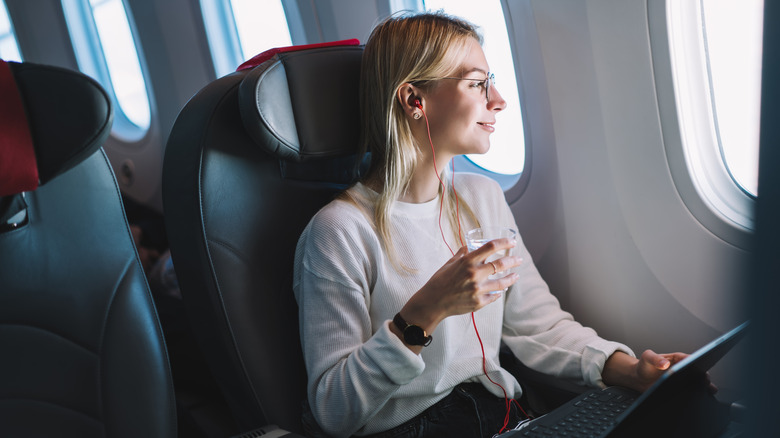Travel Guides International Travel Etiquette
Lexi Kassler
Among the many things that can be annoying about plane travel, issues with seating are usually at the top of the list. Whether it’s the limited legroom, being seated next to an annoying seat mate, or finding your in-flight entertainment isn’t working, there are seemingly endless things that can go wrong with your travel experience. What’s worse still is when you pay for your preferred seat and find someone else sitting in it, or you’re asked by another passenger if you can switch seats once you’re already settled in.
This sparks the beginning of what can become an uncomfortable interaction with someone inevitably feeling like the bad guy for having to ask or having to say no. So how should passengers go about this tricky situation? Well, like most dubious social situations, it’s not totally black and white. Sometimes it’s okay to ask, and sometimes it’s totally okay to say no and not feel like you’re being a curmudgeon.
When it’s appropriate to ask

Shine Nucha/Shutterstock
Though it’s frowned upon, there are some situations where it’s appropriate to ask for someone to switch seats. Obviously, if you get to your seat and you find someone in it, it’s perfectly okay to tell them they’re in the wrong seat. In most cases, the passenger will apologize and move.
If you’re on a flight and you booked your tickets at the last minute — let’s say for an emergency of some kind — and you’re flying with a young child, it may be appropriate to ask. However, it’s best to ask the agent at check-in to place you together rather than forcing someone into an awkward situation where they feel they can’t say no. If you don’t do that and still need to ask, make sure the person that’s switching isn’t getting put into a worse seat than they paid for, which is usually considered a middle seat.
One more situation where you can ask — though you still need to be understanding if they say no — is when you have a severe animal allergy and a person with a pet is sitting next to you. Again, you should check with the gate agent first and ask if there are pets aboard and if you can be placed away from them. If you forgot to do that, ask a flight attendant next and save asking another passenger to switch as a last resort.
When it’s okay to say no

GaudiLab/Shutterstock
Etiquette experts say you are perfectly welcome to say no in most cases when someone asks you to switch seats. This is doubly so when you’ve paid for your seat in advance. If you’re tall and need more legroom, don’t cave and give away your aisle seat to someone who didn’t plan ahead. If you need to sleep on your red-eye flight because you’ve got an early meeting the next day, you don’t need to give your window seat away.
Basically, you should get what you paid for. And unless the offer is for a comparable or better seat, no one would say you’re being particularly unreasonable, even if you’re just saying no on principle. Nowadays, it’s so easy to book seats in advance if passengers want to sit in a particular seat, sit together with their partner, or need to sit with their young child. It isn’t frugal to count on the goodwill of others to get the seat you want — at best, it’s a cheapskate move and, at worst, it’s downright manipulative!

